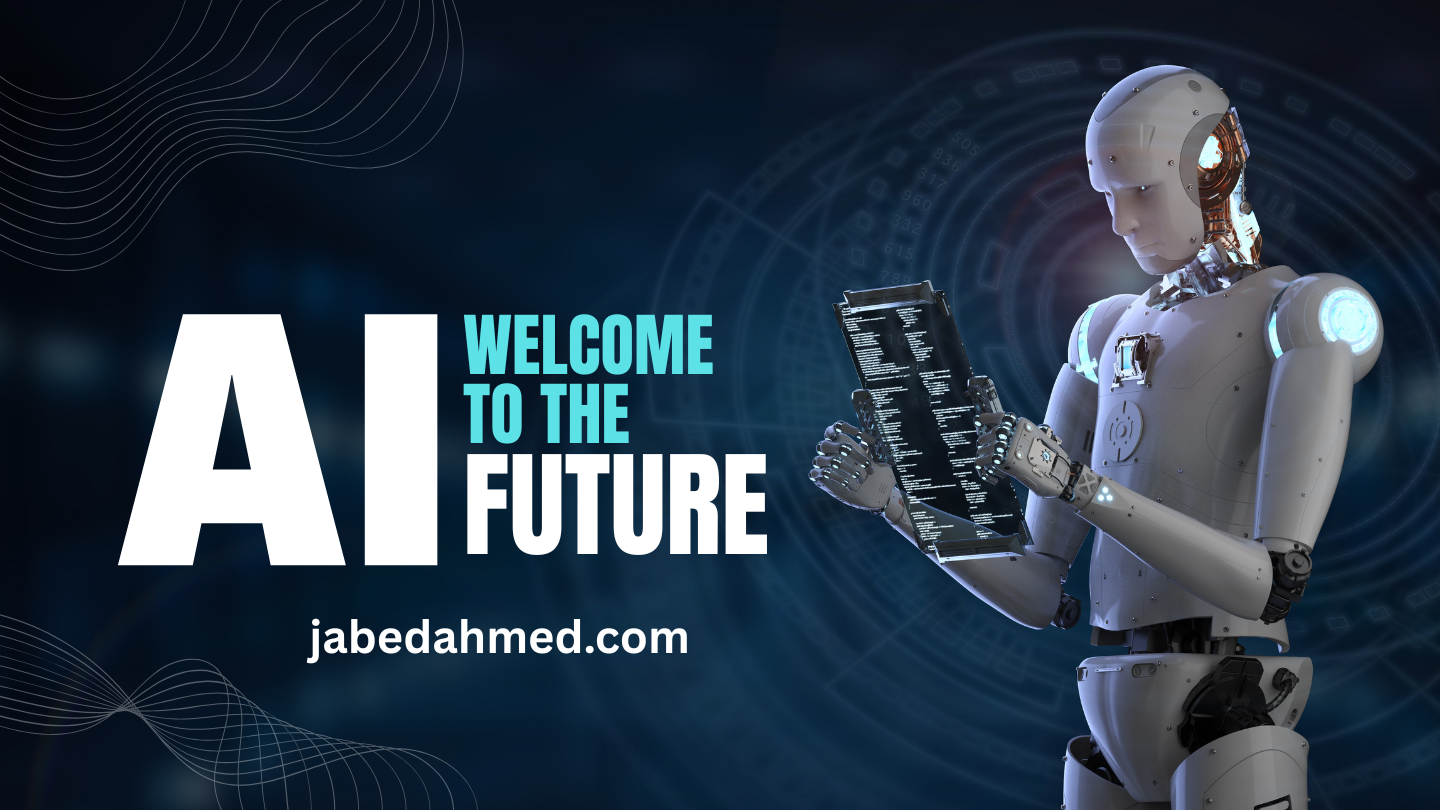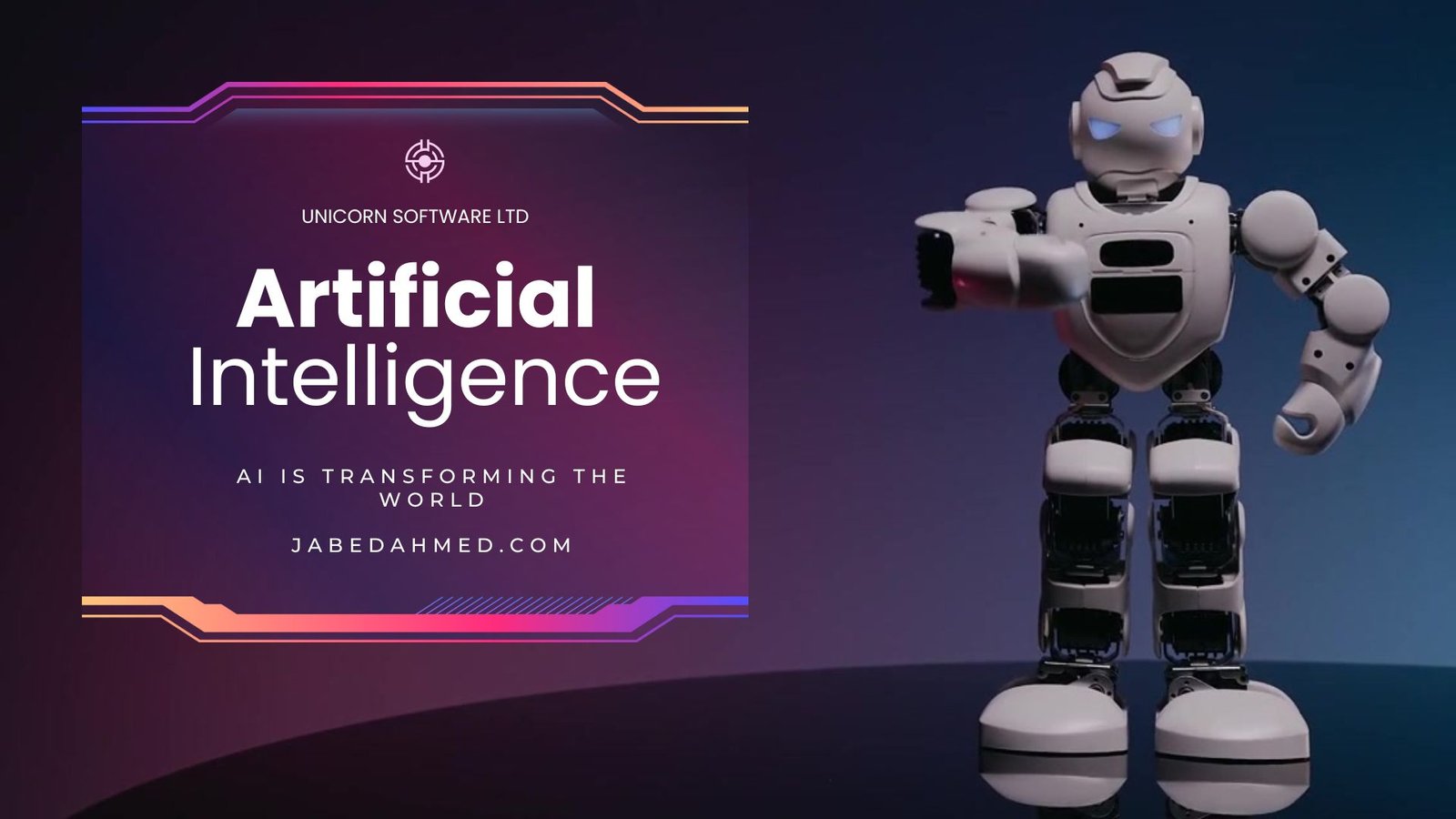How AI Is Transforming the World: Opportunities, Challenges, and My Personal Perspective
Introduction
Artificial Intelligence (AI) is no longer a concept confined to science fiction — it’s reshaping how we live, work, and interact with the world. As the founder of several tech-driven companies, including Unicorn Software Ltd and EduNova International, I’ve witnessed firsthand how AI is transforming industries and creating new possibilities every day.
This blog post explores the current state of AI, its real-world applications, the ethical concerns it raises, and how I’m using AI tools in my businesses to stay ahead.

What Exactly Is AI?
Artificial Intelligence refers to machines or software that can mimic human intelligence — learning from data, recognizing patterns, and making decisions with little or no human intervention. Some key branches of AI include:
- Machine Learning (ML) – systems that learn and improve from experience
- Natural Language Processing (NLP) – allowing machines to understand and respond in human language
- Computer Vision – enabling machines to interpret and analyze visual content
- Generative AI – like ChatGPT, that can generate human-like text, images, and more
Real-World Applications of AI
AI is powering innovation across sectors. Here are some exciting real-world uses:
- Healthcare: Diagnosing diseases, predicting patient outcomes, and automating medical imaging analysis
- E-commerce: Personalized product recommendations, fraud detection, and inventory management
- Marketing: AI-driven campaign optimization, content generation, customer segmentation
- Education: Smart tutoring systems, personalized learning platforms, automated grading
- Software Development: AI-assisted coding (like GitHub Copilot), debugging, and UI testing
At Unicorn Software Ltd, we’re actively experimenting with AI-enhanced development workflows and smart SEO strategies. At EduNova International, AI helps us automate application processes and provide students with smart tools for learning and research.
How I Personally Use AI Tools in My Workflow
As an entrepreneur managing multiple ventures, I use AI tools to enhance productivity and scale faster:
- ChatGPT for content ideation, marketing copy, and support scripting
- Midjourney & DALL·E for concept-based image generation
- Grammarly & Quillbot to refine documentation and reports
- Notion AI for project planning, task automation, and internal knowledge sharing
These tools have reduced repetitive work, improved consistency, and allowed me to focus more on strategy and creativity.
The Ethical Concerns of AI
While AI brings immense benefits, it also raises important ethical questions:
- Data privacy – How is user data being used, and is it secured?
- Job displacement – Will AI replace human roles, and how can we reskill?
- Bias in algorithms – AI systems can reflect and amplify societal biases
- Accountability – Who is responsible when AI makes a wrong decision?
As business leaders and innovators, we have a responsibility to adopt AI ethically, ensuring it empowers people rather than replacing them.
The Future of AI: What’s Next?
We’re just scratching the surface of AI’s potential. Some emerging trends I’m closely watching include:
- AI + Blockchain – securing smart contracts and verifying authenticity
- AI in Cybersecurity – proactive threat detection and response
- Edge AI – bringing AI processing closer to devices for speed and privacy
- AI for Social Good – using AI in climate research, disaster response, and public health
These innovations will continue to shape our future — and I plan to integrate them strategically across my businesses.
Final Thoughts
AI isn’t a threat — it’s a tool for growth when used with intention and responsibility. It has already changed how we create, learn, and make decisions. My advice to entrepreneurs, students, and professionals is simple: embrace AI, stay informed, and lead with purpose.
To explore more about how I’m integrating AI in education, web development, and business, feel free to connect with me on LinkedIn or reach out at [email protected].
Let’s shape the future — together.
— Md Jabed Ahmed
